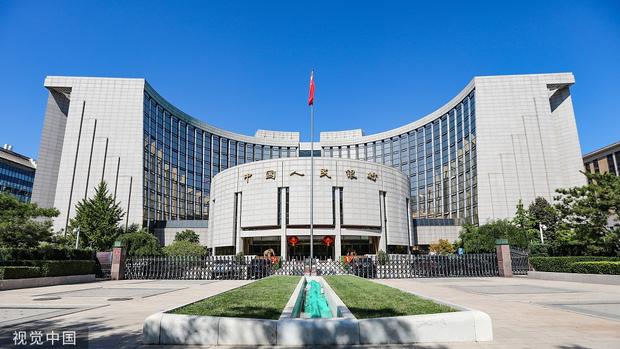 This Sept 24, 2019 photo shows the headquarters of China's central bank - the People's Bank of China – in Beijing. (PHOTO / VCG)
This Sept 24, 2019 photo shows the headquarters of China's central bank - the People's Bank of China – in Beijing. (PHOTO / VCG)
China will roll out more proactive fiscal policies and flexible monetary measures to drive the real economy and support a strong economic rebound once the epidemic is contained, officials said at a press conference on Monday.
"The (country's) proactive fiscal policy will be active, and we will launch some new measures," said Ou Wenhan, assistant minister at the Ministry of Finance.
ALSO READ: China cuts benchmark lending rate
The policy interest rate will guide the overall market interest rate to decline, for the sake of reducing enterprises’ financing costs
Chen Yulu, Vice-governor, the PBOC
More proactive fiscal policies will be enacted to prevent the economic growth rate slipping out of a reasonable range, and new measures will include introducing new policies to cut taxes and fees to boost production resumption and support small and medium enterprises, Ou said.
Local governments will expand the issuance of special bonds, a debt instrument to raise fund for infrastructure projects. The central government will also transfer more funds to local governments.
Simultaneously, the country's central bank is planning to release more countercyclical monetary measures soon, including maintaining reasonably ample liquidity and adopting structural monetary policy tools and policy-based financing measures, Chen Yulu, vice-governor of the People’s Bank of China, said on Monday.
"The policy interest rate will guide the overall market interest rate to decline, for the sake of reducing enterprises’ financing costs," Chen said.
"Currently, China's monetary policy space and policy tools remain sufficient." Chen stressed.
In the short term, the targeted reserve requirement ratio for inclusive financing will have an annual adjustment, and more commercial banks will enjoy a preferential policy of lower reserve requirement ratio (RRR), the PBOC official said.
He urged financial institutions to "give full support" to small businesses, while dismissing concerns that this may lead to more non-performing loans.
READ MORE: Policymakers predict rapid recovery
The non-performing loan ratio of China's commercial lenders stood at 1.86 percent last year, well below the 5-percent regulatory standard, Chen said.
He also pledged a big increase in the issuance of special bonds to provide sufficient funds to commercial lenders for supporting smaller enterprises.
Three policy banks, namely China Development Bank, the Export-Import Bank of China and the Agricultural Development Bank, will strengthen financial support for companies, he added.
The PBOC will also make sure lenders have sufficient capital resources and will support commercial banks to issue special bonds to provide small and medium enterprises with more credit.
With Xinhua inputs


